
Places are going fast for our conference next month. See full programme here. If you would like to secure a place please register here.
See you there.
Latest research and knowledge exchange news at Bournemouth University

Places are going fast for our conference next month. See full programme here. If you would like to secure a place please register here.
See you there.
The Department of Events and Leisure (DEL) has a long-standing tradition of contributing their expertise to events and festival organisations throughout the UK. This event/festival season has been exceptionally busy for DEL and has seen staff collaborating with organisations in Northern Ireland, London and in Dorset.
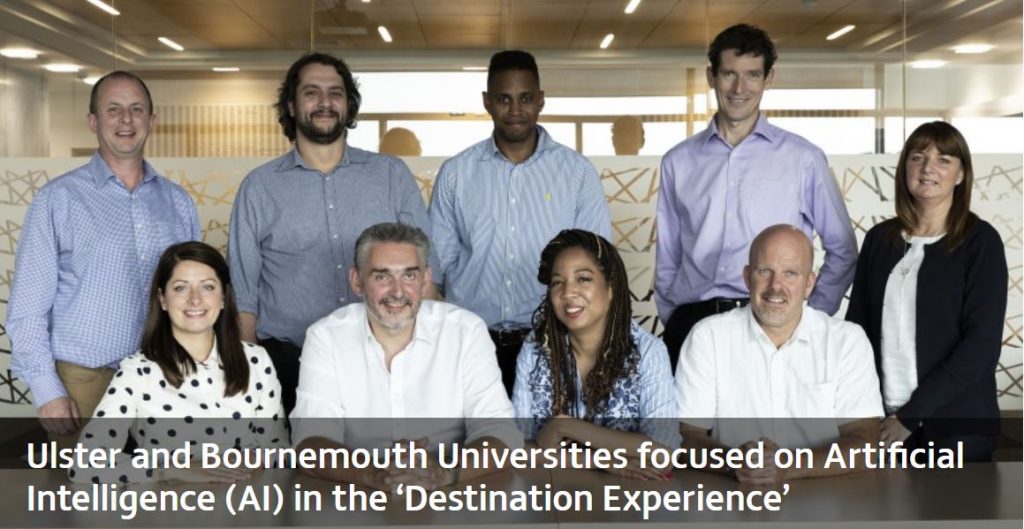
Dr Nicole Ferdinand ( front row, third from left) at project update meeting at Ulster University attended by Fergus Mckay, Operations Manager, International NW200 (back row, 1st from left)
Dr Nicole Ferdinand, Senior Academic in Events Management through a collaborative research project with Ulster University is currently working with the International NW200. Fergus Mckay, Operations Director has been extremely positive about the results of the project so far and the value it has delivered for his organisation. At a project update meeting hosted on August 24, 2018, he provided the following feedback:
“The collaboration with Ulster University and Bournemouth University has enabled us to investigate technology enabled means to create accessible, real-time and personalised event experiences both at the event and throughout our fans visit to the area. Looking for fun and unique experiences for event participants is a critical event objective and the recent twitter bot was a means by which to create and share fun experiences.”
Dr Aaron Yankholmes, VIP at Notting Hill Carnival 2018
Dr Aaron Yankholmes, Academic in Events and Leisure was a VIP at the Notting Hill Carnival on bank holiday Monday August 27th, 2018. He was specially invited by the organising committee to the celebrations this year. DEL staff have a long history with the organization, having collaborated with NHC stakeholders on a research informed strategic visioning project in 2013 entitled Carnival Futures. DEL staff have also published a number of articles and case studies on this event. This year was first time that the organisation has hosted a DEL member of staff at their event.
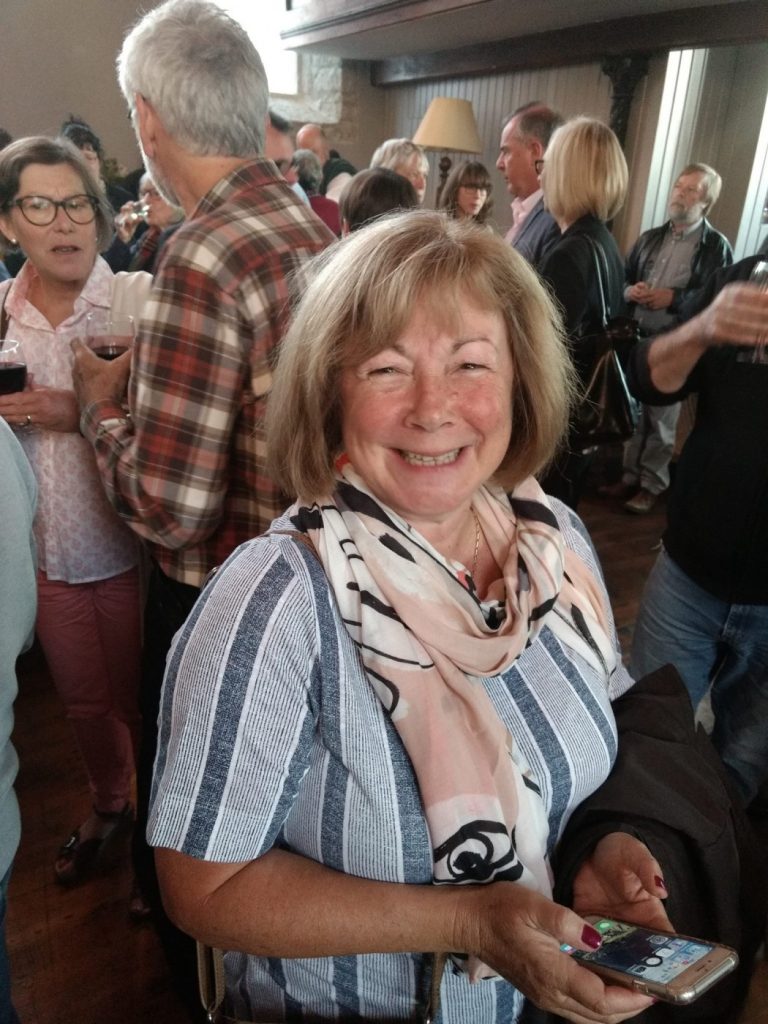
Dr Caroline Jackson at B-Side Festival Launch
Dr Caroline Jackson and Dr Nicole Ferdinand were also VIP guests at the B-side Festival opening. Dr Ferdinand has also joined the B-side Festival Board of Directors with a view to supporting B-side with implementing a programme of institutional strengthening activities supported by their recently awarded Arts Council Catalyst Fund.

Just over two years ago, I went to San Francisco to launch my book Pedro Zamora, Sexuality and AIDS Education, at the GLBT Historical Society. Just two days ago I came back from New York where I launched my latest book Heroism, Celebrity and Therapy in Nurse Jackie. While this seems like a roller coaster of production and travelling (with a lot of it all at my own expense!), in thinking about these two events, I was struck by the meaning of ‘place’ in research.
When I was in San Francisco, I was fortunate to not only be interviewed by the Bay Area Reporter, but also Alastair Gee interviewed me (who often writes in in the Guardian and The New Yorker). Alastair and I were in conversation for over two hours – outside the ‘Real World’ house – the place where Pedro Zamora had lived whilst filming the TV series, shortly before he died. Alastair mostly pressed me to explain my interest and connection with that particular location – ‘The Real World House’ – on Lombard Street, the most ‘crooked’ (winding) street in the world. The interview seemed more like a therapy session, where we also discussed the tragic event of the Orlando shooting incident that had occurred at Pulse Nightclub – just a few days before, where 49 people attracted to and/or part of the LGBT community were slain. Whilst Alastair didn’t eventually transform this interview into a published piece, this memory of the interview and the possible meaning of a particular place- relevant to research – still kind of ‘haunts me’.
Spin forward two years, and somehow, I am revisiting the notion of ‘place’, as I decided to launch my new book at the BGSQD bookshop, just a few yards from the now demolished St. Vincent’s hospital in Greenwich Village, New York. The reason for this was simple, in the book I hypothesize that the fictional hospital of ‘All Saints’ in Nurse Jackie was potentially inspired by ‘St Vincent’s’. This is not difficult to work out, as St Vincent’s was sold off after going bankrupt just a few years back, and then converted into luxury condominiums. Nurse Jackie references this, by ending the series with the closing of the fictional ‘All Saints’ hospital, where our (anti) heroine Jackie Peyton passes away just after the last patient leaves the building. Added to this Edie Falco the phenomenal actress who plays Nurse Jackie is a resident of New York, I believe living not that far from Greenwich Village.
So where does this leave us? I think as researchers we are haunted by notions of place, not only where we fit in the research, but where the research narrative is played out. Being near a place where there might be some emotional meaning in the research, connects us to our human condition. For me getting the chance to be near St. Vincent’s (or should I say where it used to be), was very moving indeed. Not only was this potentially the inspiration for the setting of Nurse Jackie (a wonderful story of morality, humanity and fallibility, by the way) but coincidentally St Vincent’s was the hospital that cared for Pedro Zamora not long before he passed way.
The original buildings may be gone, in the case of ‘the Real World house’ transformed into flats, and in the case of St. Vincent’s demolished and the space transformed into something quite different, no longer a life blood to support deprived community, everyday people and outsiders. As Tom Eubanks reports in his book ‘Ghosts of St. Vincent’s’: ‘Before the entitled lived here exclusively, the marginalized died in droves’. St. Vincent’s was not only the place where those who were dying of HIV/AIDS (in the early years of the syndrome) were cared for, when many didn’t care or were too scared, but also when the Twin Towers were attached on 9/11, this was the place of first response in caring for the wounded, it was central in caring for community.
After the book launch I wandered around the streets of St Vincent’s, occasionally catching a glimpse of the cathedral-like ‘Freedom Tower’ (the new World Trade Center), a powerful sense of absence pervades in our knowledge of the original towers and the media coverage of their collapse.
Place seems significant, not only in thinking about what it all meant, but also where to go next. Research in some ways is distanced from ‘actual place’ as we try to create a perspective that seems unbiased; this is often something we tell students. However, in many ways meaningful research is situated deeply within us, it’s part of our emotional universe, occasionally illuminating the possible places that we might go, or be drawn to.
On 18th July, the conference titled “Women Entrepreneurs and Innovators- Contemporary Insights from Research and Practice” was held at the Talbot Campus. The conference brought together academics, entrepreneurs, professionals, and students to discuss cutting edge insights from theory and practice of women entrepreneurship.
The day started with Dr Mili Shrivastava, organiser of the conference, highlighting the importance of women entrepreneurship and introducing the speakers. The first speaker was Professor Claire Leitch from Lancaster University. Prof Leitch is the editor of International Small Business Journal, a leading entrepreneurship field Journal. She presented her work on women entrepreneurship as a gendered niche and its implications for regional development policy. Following this stimulating talk emphasizing the role of geography for women entrepreneurship, Professor Helen Lawton Smith from University of London, discussed academic women entrepreneurs and research commercialisation by them at UK Universities. The third speaker was Erin Thomas Wang, founder of Makingmumpreneurs. com. She shared unique perspectives from her start- up journey.
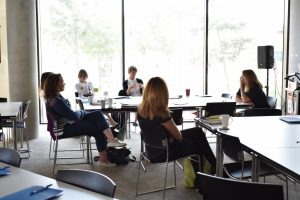
In the afternoon session, Professor Lynn Martin, an academic entrepreneur from Angela Ruskin University, discussed her perspectives on women entrepreneurship from both research and practice. Following her talk, Dr Mili Shrivastava presented contemporary insights from her project with Gabriel Glixelli on women entrepreneurs in High technology industries. Finally, Ms Sarah Veakins, Marketing advisor of Outset, a government organisation advocating women enterprise talked about her experiences in supporting women entrepreneurs in the region and her perspectives on starting-up.
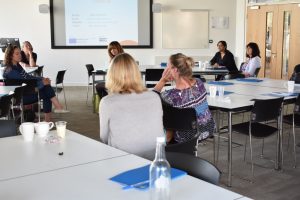
The Conference organically developed into a forum for compelling discussion on various aspects of women innovation and entrepreneurship such as gender, society, regional context and role of education that emerged throughout the day. It became an innovative setting for stimulating discussion on cutting-edge research and practice of women entrepreneurship and innovation with entrepreneurs and academics coming together for an insightful and enriching day.
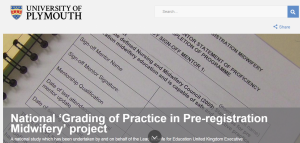
Dr Susan Way (CMMPH) and four other collaborating UK universities (Plymouth, Greenwich, Suffolk and Anglia Ruskin) have been researching grading of practice in pre-registration midwifery education. The report is now published and can be viewed via this link
The research, ‘National Grading of Practice in Pre-registration Midwifery Project’ was undertaken on behalf of the Lead Midwife for Education UK Executive – a group of experienced midwives representing the Approved Education Institutions in the UK which deliver midwifery programmes leading to Nursing and Midwifery Council (NMC) registration. The project sought to identify and remedy some of the variations in grading clinical practice in pre-qualifying midwifery programmes across the UK. The project was set up in such a way that it will have resonance with a variety of healthcare programmes, and the suggested framework and rubrics that were developed have the potential to be transferable.
The research comprised of three phases:
Phase one: scoping study – Fisher M., Bower H., Chenery-Morris S., Jackson J. and Way S., 2017. A scoping study to explore the application and impact of grading practice in pre-registration midwifery programmes across the United Kingdom, Nurse Education in Practice https://doi.org/10.1016/j.nepr.2016.01.007
Phase two: development of core principles – Fisher M., Way S., Chenery-Morris S., Jackson J. and Bower H. 2017 Core principles to reduce current variations that exist in grading of midwifery practice in the United Kingdom, Nurse Education in Practice. https://doi.org/10.1016/j.nepr.2017.02.006
Phase three: developing a set of generic grading criteria (article in progress).
The research team are currently in the process of developing a Practice Assessment Toolkit, drawing from the findings from this study. On completion the toolkit will be uploaded onto the project website.
A first year BA Television Production student, Rowan Prosser and Lecturer, Annie East share their thoughts on a pilot research project using 360-degree filming technology.
Fusion BU2025 looks to ensure that students are informed in the ‘latest thinking in practice and research’ it also looks to ensure graduates are ‘innovative’ and ‘have research skills’. The doctoral research that Annie East is engaged with seeks to discover the ways in which students are working with health and safety risk management processes on their location film shoots. The pilot study looked to test the use of a 360-degree camera on a student shoot as a Virtual Reality (VR) elicitation tool for data gathering . Here Annie East and first year student, Rowan Prosser, reflect on his role as student research assistant, working with the 360 degree camera on a second year student film shoot.
Thoughts on student/lecturer collaboration.
Rowan Prosser: As a first year student the opportunity to work on academic research was both intriguing and a great opportunity to learn. The project gave me a chance to see how research is carried out in an academic way, seeing the correct processes of it all. It was all carefully considered and planned accordingly, my needs and any questions I had were answered immediately; something you don’t get when working with other students. When planning for the pilot project, the meetings that took place were well informed. In contrast, when I work with fellow students, there is sometimes difficulty in getting to the point of the discussion or the heart of the problem.
Annie East: Finding a student keen to work on research that was testing relatively new technology was key for this pilot. Meeting with Rowan for the first time as a researcher rather than as lecturer was a turning point. The power dynamics of student/lecturer dissolved with Rowan becoming more of an equal in our journey to master the technology and workflow of the camera. I chose to work with a student to lessen the power dynamic on the student film shoot; taking myself physically away from their shoot and allowing a student to operate the 360-degree camera.
 360-degree camera
360-degree camera
Reflections on the approach.
Rowan Prosser: It was an interesting scenario to be surrounded by second year BA Television Production students. Due to the role I had (responsibility for the 360-degree camera) they all tried to adhere to my needs and requests throughout the shoot. This allowed me to make sure that my camera work was achieved. If I was in the way, they would politely ask me to move the camera. The kit used really interested me; 360-degree video is something that is slowly coming into the fold – people (including the 2ndyear students I was working with) are very interested in the camera and how it works. This allowed me to educate and show them.
Annie East: Interestingly it is not just the power dynamics of lecturer/student that are changing with this work but also student-to-student interactions. The collaboration gave Rowan a new perspective and a window into the world of a second year student film shoot, levelling the inter-year dynamics somewhat. Silently it also afforded him institutional power; he became the educator and sage.
Reports from the field.
Rowan Prosser: Observing second-year students on their film shoots gave me the ability to blend in since I was a fellow student. We were able to talk about the course, topics we enjoyed thus allowing the presence of a camera filming their every movement less uncomfortable. It was interesting to observe the similarities of 2nd-year students to 1st years on the shoot. The classic way in which clear leaders can sometimes emerge and take over other people’s role was seen, this being an issue with student filmmaking, when someone isn’t happy with how someone else is conducting their role.
Annie East: Rowan’s reflections display some of the key tensions in setting up this research project; how do we observe students in the field and in what ways does that change the way they behave. This pilot confirmed going forward that the data to be captured is not the footage itself but the conversation about the footage when each crew member put on their VR visor to re-immerse themselves back into their field. This shifts the research focus away from behaviour and towards reflections on action and reflections in action.
Moving forward
Rowan Prosser: I really enjoyed the experience, as the opportunity to carry out research for an academic is not something that happens a lot. It gave me a clear insight into the future on how I can carry out future research and also taught me a lot about 360 cameras which I have not previously used. The group of second year students responded very well to me being around, and in the group, so it would be interesting to see how other groups would react to my involvement.
Annie East: These reflections suggest a shift in student identity and changing power dynamics between researcher and student and between student-to-student. The confidence that this work appears to have afforded Rowan sets him on the path of the lifelong learner; someone thirsty for new challenges. The challenge for BU2025 is the possible perception that working on academic research is a rare experience. Going forward Rowan can choose to be part of the full study and be more experienced for it; a scaffolded approach to collaborative research rather than a siloed one. The vision of fusion in BU2025 features a strong sense of inclusivity which we can promote to our students creating not only rounded academics but also fully rounded students, confident to take on ‘intriguing’ research projects.
References
Bournemouth University BU2025 Strategic Plan 2018 (online). Available from: https://www1.bournemouth.ac.uk/sites/default/files/asset/document/bu2025-strategic-plan.pdf (Accessed 10 August 2018)
Foucault, M., 1991. Discipline and punish. The birth of the prison. London: Penguin.
Schön, D. A., 1983. The reflective practitioner. [online] : how professionals think in action. New York : Basic Books.
Vygotsky, L. S. and Cole, M., 1978. Mind in society : the development of higher psychological processes / L. S. Vygotsky ; edited by Michael Cole … [et al.] Cambridge : Harvard University Press.
Securing funds from British Council to organise a Newton Funds Researcher Links workshop required good effort and persistence. Careful consideration of the feedback from an unsuccessful submission helped identifying where improvements were needed – we were successful in our second attempt. I believe the most important factors contributing to the success of the application were: the theme is topical and relevant for both countries (UK and South Africa), including active world-recognised researchers as mentors, having trach record of work and good connections in the host country (South Africa in this case). I have already being to South Africa delivering workshops to public sector practitioners on a similar subject funded by the South African National Research Foundation.
The workshop focused on ‘Research capacity for sustainable ecosystem-based management of estuaries and coasts’ and it was held on 19-21 June 2018 at the uShaka Marine World in Durban. There were 42 participants, 23 from South Africa and 19 from the UK, including early-career researchers from natural and social sciences backgrounds, established researchers and government practitioners involved in policy-making or implementing policy related to management of coasts and estuaries. I coordinated the workshop in collaboration with Professor Trevor Hill from University of KwaZulu-Natal and had a great support from Bronwyn Goble from SAAMBR/ Oceanographic Research Institute and Katie Smyth (University of Hull). The contribution from Mike Elliott (Hull), Andrew Cooper (Ulster), Ursula Scharler (UKZN) and Alan Whitfield (SAIAB) as mentors was greatly appreciated for the support and inspiration given to the early career participants.
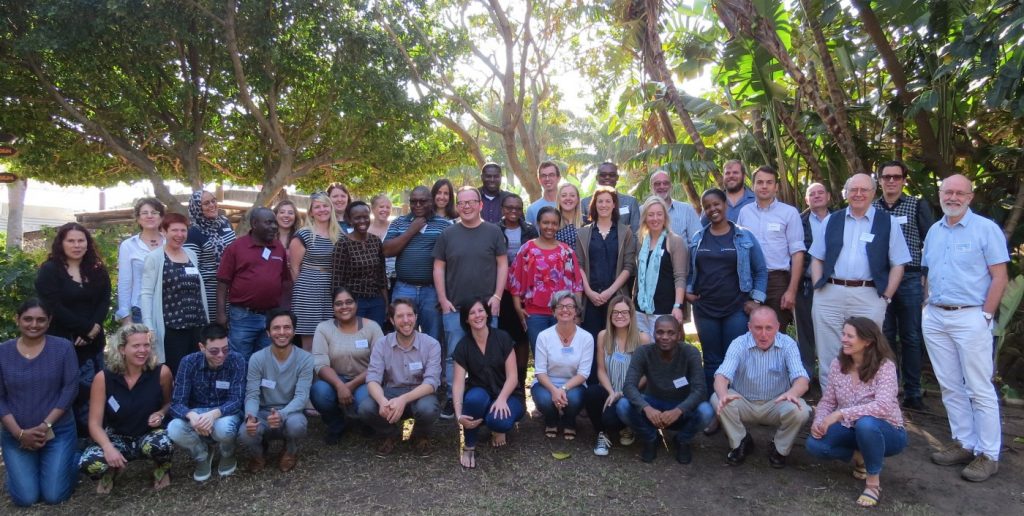
Participants of the Researcher Links workshop entitled ‘Research capacity for sustainable ecosystem-based management of estuaries and coasts’ (19-21 July 2018, Durban, South Africa) coordinated by Dr Luciana Esteves (Dep Life & Environmental Sciences, SciTech).
I can only say that the experience of engaging with such talented and vibrant group of early career researchers and stimulating open discussions about career directions and prospects, focusing particularly on the importance of international collaboration and closing the research-practice gaps was truly rewarding. It was uplifting to see the connections building between UK and South African researchers and how links with government and NGO practitioners were providing a new direction to the career of some participants. From day 1 participants were talking to each other as old colleagues and engrossed in the activities proposed. No wonder some came out with clear plans on how they will work together, from designing teaching material to collaborating in research proposals and papers, consolidated the links created during the workshop. These links are evident in the action plans participants were asked to produce at the end of the workshop.
Very important was the participation of government practitioners, acting at the national level designing policy and at the province level implementing policy. It was clear the interest for improving research-policy links and some examples of good practices in the UK and South Africa and new ideas were shared and discussed. For example, secondments of staff, co-funding of research posts/projects, ways of stimulating policy-driven research calls. In general terms, the workshop discussions highlighted two evident differences:
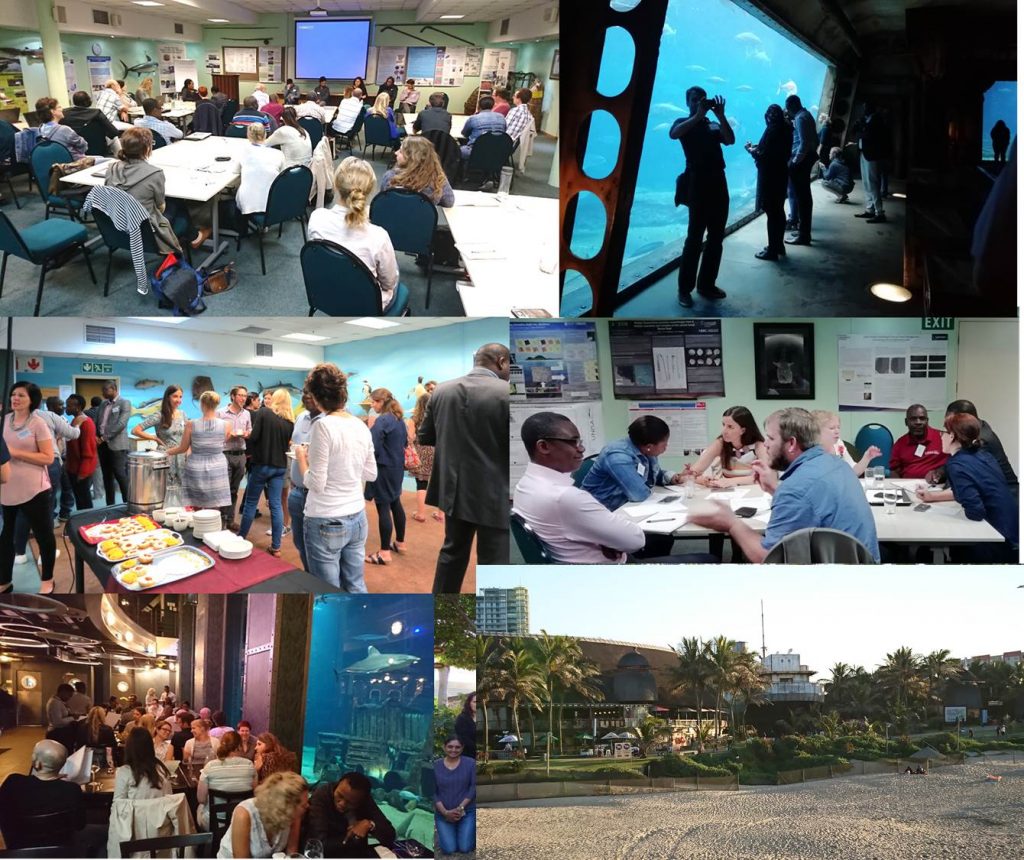
Besides lots of discussions, the activities included a visit to the marine aquarium, networking during coffee breaks and a fantastic dinner at the Cargo Hold restaurant (the boat you see on the bottom right).
Ever puzzled over tax? Wondered about the politics or personal impact of international tax news? This session with BU researchers, students and the Chartered Institute of Taxation will give you a greater understanding and appreciation for tax and help you become more tax-savvy.
During this session, we have five star students presenting 5-minute ‘tax’ talks:
Taking second billing in this session are BU’s tax academics: Dr Phyllis Alexander, Dr Alan Kirkpatrick and Richard Teather. We will be joined by Mr Andy Brodrick of the Chartered Institute of Taxation (CIOT), the organisation funding Dr Alexander’s research on tax morale.
There will be at least 15 minutes reserved for Q&A and an open discussion with this diverse panel on anything and everything to do with tax. This will be a fast paced, interesting hour in which BU’s Fusion philosophy comes to light!
Please do join us and book your free tickets here.
Dr Sascha Dov Bachmann, Associate Professor in International Law (BU) and War Studies (Swedish Defence University – FHS), Research Fellow at CEMIS, Stellenbosch University and Director of BU’s Centre for Conflict,Rule of Law and Society was invited to give a keynote address on Hybrid Warfare at 1 (German/Netherlands) Corps to flag officers of the Royal Netherlands Army on invitation by General Beulen, Commander of the Royal Netherlands Army.
1 (German/Netherlands) Corps is one of NATO’s High Readiness Forces (Land) Headquarters. It is based in the German city of Münster.
The speech will reflect on Sascha’s ongoing work on the role of lawfare in developing an cyber-empowered offensive and defensive Hybrid Warfare Campaign.
 On Tuesday 17th April 2018, the Ageing and Dementia Research Centre (ADRC) were invited to join Health Education England (HEE) to showcase the Dementia Education and Learning Through Simulation 2 (DEALTS 2) programme at ‘Dementia 2020: The Next Phase’ in London. The event, hosted by Govconnect, provided an opportunity to consider progress on the ‘Challenge Dementia 2020 Implementation Plan’ assessing whether commitments have been meet so far. Commitments of the plan aspire to make England the best country in the world for: dementia care and support; for people with dementia to live; and to conduct dementia research.
On Tuesday 17th April 2018, the Ageing and Dementia Research Centre (ADRC) were invited to join Health Education England (HEE) to showcase the Dementia Education and Learning Through Simulation 2 (DEALTS 2) programme at ‘Dementia 2020: The Next Phase’ in London. The event, hosted by Govconnect, provided an opportunity to consider progress on the ‘Challenge Dementia 2020 Implementation Plan’ assessing whether commitments have been meet so far. Commitments of the plan aspire to make England the best country in the world for: dementia care and support; for people with dementia to live; and to conduct dementia research.
In 2016, HEE commissioned a team from Bournemouth University (BU) to develop and evaluate DEALTS 2. DEALTS 2 is a simulation-based dementia education programme for staff in acute hospitals across England. It is based on an experiential learning approach, placing hospital staff into the shoes of a person with dementia, to facilitate a positive impact on practice. The training is mapped against a selection of core competencies for staff with regular contact with people with dementia (Tier 2) and underpinned by the Humanising Values Framework a philosophical lens originally developed at BU. The team, Dr Michelle Heward, Dr Michele Board, Ashley Spriggs and Prof Jane Murphy, delivered DEALTS 2 as a train-the-trainer model across England in 2017 to 196 trainers from 13 HEE Local Education Boards, and are continuing to evaluate the impact on practice.
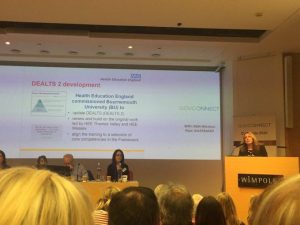
The DEALTS 2 programme was showcased as a case study at the Dementia 2020 event in a presentation given by Jan Zietara the Head of Programme Delivery for HEE. Dr Michelle Heward represented the ADRC at the event which provided an opportunity to connect with members of key organisations involved in delivering the Implementation Plan for Dementia 2020, as well as people with dementia, caregivers and individuals interested in dementia care and support more broadly.
The event was co-chaired by George Rook an advocate who himself lives with dementia, and Rachel Thompson the Professional and Practice Lead for Dementia UK. Throughout the event a range of speakers updated the audience on progress including: Jeremy Hughes CBE, Chief Executive, Alzheimer`s Society; David Nuttall, Deputy Director – Dementia Policy, Department of Health; and Dr Charles Alessi Senior Advisor and Lead for Dementia, Public Health England. It has to be said though that Suzy Webster who is a caregiver for her mother who has dementia gave the most heartfelt speech reminding us that policy is necessary but it is now time to see action on the ground to improve care and support for people with dementia – not a dry eye was left in the house!
Discussion on the day focused on celebrating the small steps forward that have been taken, whilst being mindful that there remains some way to go to meet the commitments outlined in the plan by 2020.
A year on from BU hosting the prestigious British Conference of Undergraduate Research, the annual BCUR 2018 gathering this year was hosted by the University of Sheffield last week. On the heels of a successful SURE 2018 at BU in March, 7 undergraduate students from across all faculties were supported to showcase their research at BCUR 2018 among close to 600 delegates. Atanas Nikolaev, a SURE sponsored student and recent graduate of Sports Management did a presentation on his ethnographic study of Embodied Experiences of Women at Leisure Centres, “The most interesting aspect of the conference to me was the opportunity to engage with like-minded people across various scientific fields. It was a great way to get exposure for my research project and be challenged with ideas that could potentially lead to future developments. BCUR was great to learn about research that was of interest to me and to potentially build lasting relationships with young researchers from across the country”.
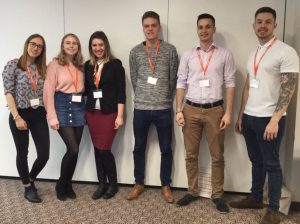
Bethan Stephenson, an FMC student studying English presented a piece of research entitled ‘The Changing Space of Warwick County Museum’ which challenges notions of memory and how historic accounts are valued. Bethan said “I really enjoyed the experience of attending the British Conference of Undergraduate Research (BCUR) at Sheffield University, and found it very illuminating. I got there not really knowing what the conference fully entailed, and so was very pleasantly surprised. As a final year student, I’ve been recently contemplating post-graduation options, and the introduction to BCUR was incredibly informative. They discussed the importance of research-based careers, and the opportunities this can lead to. I’ve always loved research, and have multiple fields that I’m passionate about, and so I really feel like this introductory talk helped confirm my desire to undertake a masters, and possibly a PhD, in the future”.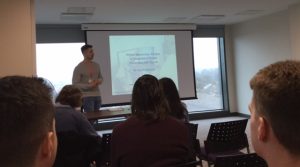
Other BU students taking part included Charlie Simmons, a business studies marketing student presenting on Digital Immersion and the Streaming of E-Sports. Tereza Paskova, a final year Tourism student presented on Emotional Intelligence as a tool in customer satisfaction in tourism/hospitality settings. Isobel Hunt, a Faculty of Science and Technology student studying Psychology presenting on Consumer Decision Making and Trust for Online Restaurant Reviews and Scott Wilkes who is studying Sport Development and Coaching Sciences and also presented his research on the effects of stammer has on social participation in sport amongst Young People.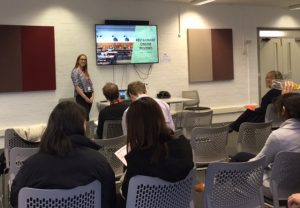
The involvement of BU undergraduate research at the national BCUR event along with a presence at their annual precursor event, Posters in Parliament, has been possible with key support and involvement from CEL and key contributors across all faculties. It is an opportune channel for students to engage with the research process and make real world connections to the impact of their work. For future opportunities in these initiatives, contact Mary Beth Gouthro mgouthro@bournemouth.ac.uk.
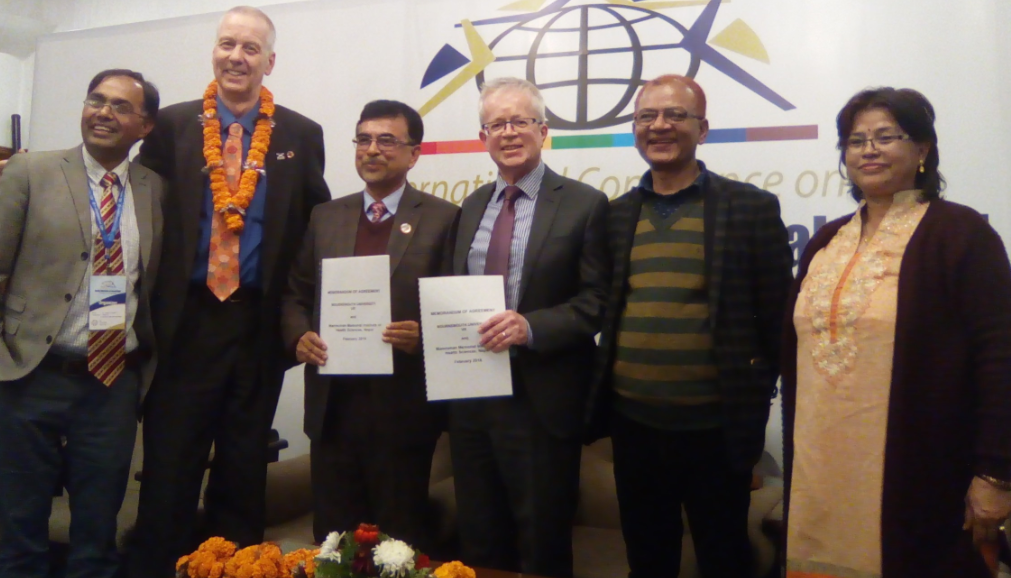 As part of the new plan BU2025, “we want to continue to develop our global partnerships and links with other institutions and organisations”. This is an admirable aim, and it is, of course, the best way forward for a truly global Higher Education Institution like Bournemouth University (BU). But to translate this general aim into a particular global partnership we need to consider the underlying processes of initiating and developing such partnerships. We published a paper [1] on the issues one needs to consider in developing a partnership, based on the example of BU’s partnership with Manmohan Memorial Institute of Health Sciences (MMIHS) in Nepal.
As part of the new plan BU2025, “we want to continue to develop our global partnerships and links with other institutions and organisations”. This is an admirable aim, and it is, of course, the best way forward for a truly global Higher Education Institution like Bournemouth University (BU). But to translate this general aim into a particular global partnership we need to consider the underlying processes of initiating and developing such partnerships. We published a paper [1] on the issues one needs to consider in developing a partnership, based on the example of BU’s partnership with Manmohan Memorial Institute of Health Sciences (MMIHS) in Nepal.
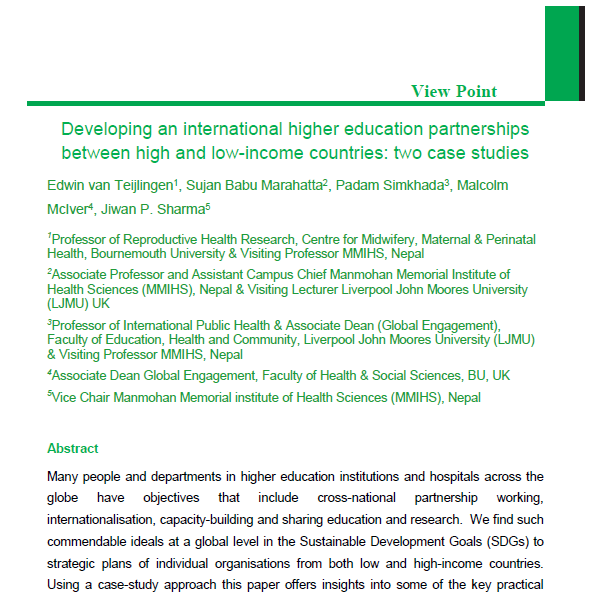
In late February this year MMIHS signed a Memorandum of Agreement (MoA) with BU at a ceremony in the Nepalese capital Kathmandu, where Prof. Stephen Tee represented BU. This MOA is an agreement between us that provides a basis on which the parties will consider potential future collaboration. The UoA formalises a long-standing collaboration between the two institutions, and indicates a desire to collaborate further in the future. MMIHS and BU academics have jointly applied for research grants, conducted collaborative research and published together and it is exactly this personal link between people that allows this, and many other, global partnerships to flourish.
Prof. Edwin van Teijlingen
Centre for Midwifery, Maternal & Perinatal Health
Reference:

The third Interdisciplinary Research Week (IRW) is being held from 19th to 23rd March 2018. Join us to celebrate the breadth and excellence of Bournemouth University’s interdisciplinary research, and stimulate new collaborations and ideas amongst the University’s diverse research community.
The week-long event includes a programme of lectures, workshops, and discussions, aimed at promoting interdisciplinary workings; to provide an understanding of how to get involved in Interdisciplinary Research.
Programme
Inspirational Speaker – Professor Celia Lury
British Academy Visit – Interdisciplinary Research
Collaborating with Others: Becoming a Better Team worker
Networking: Making the Most of an Upcoming Event
New research realities and interdisciplinarity
Interdisciplinary research with industry
Lighting Talks: What can and should be achieved in Interdisciplinary Research
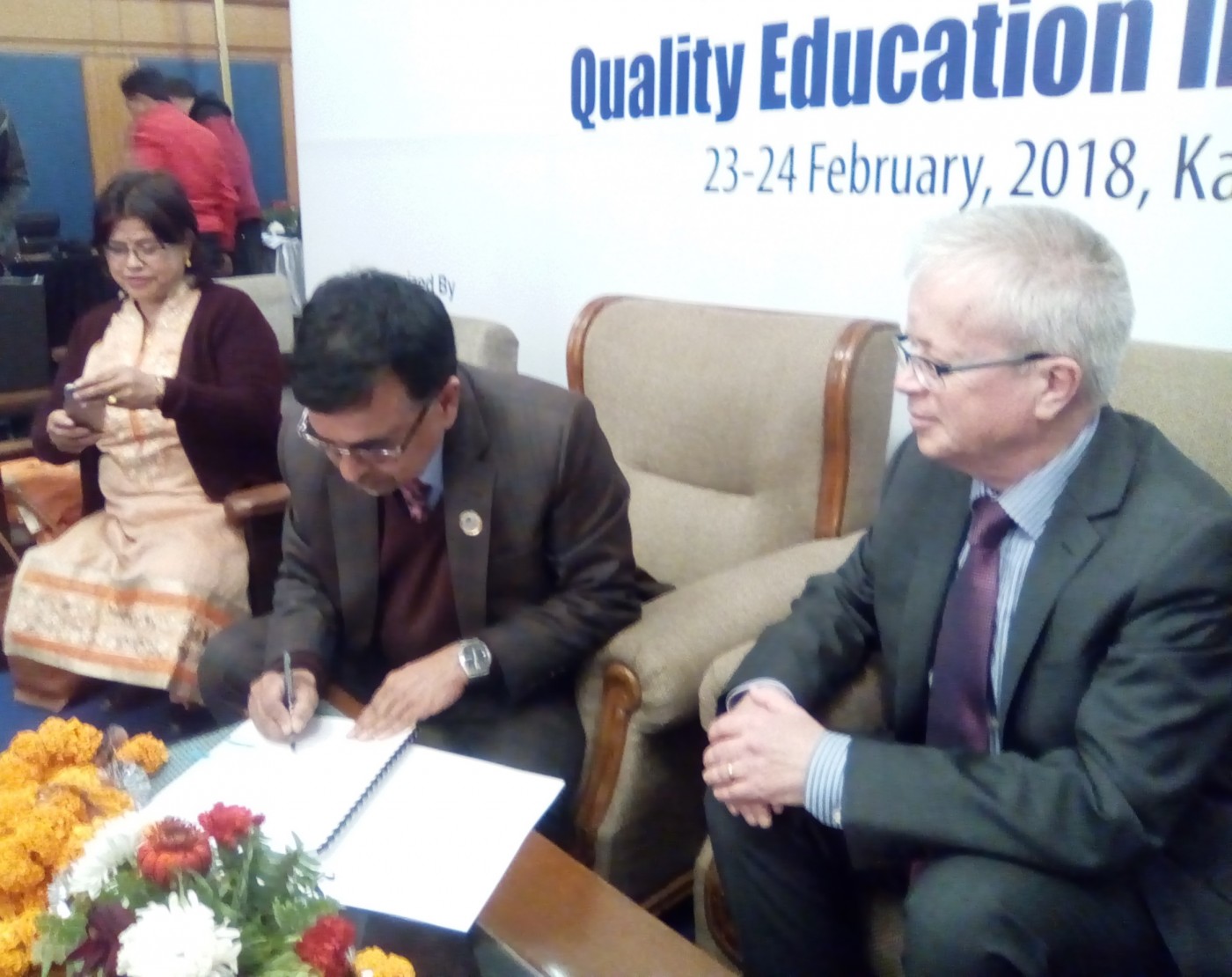 This weekend Manmohan Memorial Institute of Health Sciences (MMIHS) in Kathmandu, Nepal signed a Memorandum of Agreement (MoA) with Bournemouth University (BU).
This weekend Manmohan Memorial Institute of Health Sciences (MMIHS) in Kathmandu, Nepal signed a Memorandum of Agreement (MoA) with Bournemouth University (BU).  The ceremonial signing took place on the final day (24th Feb.) of the International Conference on Quality Education in Federal Nepal. Prof. Stephen Tee, who also spoke at the conference, represented our university.
The ceremonial signing took place on the final day (24th Feb.) of the International Conference on Quality Education in Federal Nepal. Prof. Stephen Tee, who also spoke at the conference, represented our university.
 The UoA formalises a long-standing collaboration between the two institutions. MMIHS and BU academics have jointly applied for research grants, conducted collaborative research and published together. Several BU staff [1-3] and students [4] in the Faculty of Health & Social Sciences have published in the Journal of Manmohan Memorial Institute of Health Sciences, an Open Access journal. Moreover, Prof. Edwin van Teijlingen in the Centre for Midwifery, Maternal and Perinatal Health has been a Visiting Professor at MMIHS for nearly a decade and has given several guest lectures over the years to staff and students at MMIHS.
The UoA formalises a long-standing collaboration between the two institutions. MMIHS and BU academics have jointly applied for research grants, conducted collaborative research and published together. Several BU staff [1-3] and students [4] in the Faculty of Health & Social Sciences have published in the Journal of Manmohan Memorial Institute of Health Sciences, an Open Access journal. Moreover, Prof. Edwin van Teijlingen in the Centre for Midwifery, Maternal and Perinatal Health has been a Visiting Professor at MMIHS for nearly a decade and has given several guest lectures over the years to staff and students at MMIHS.
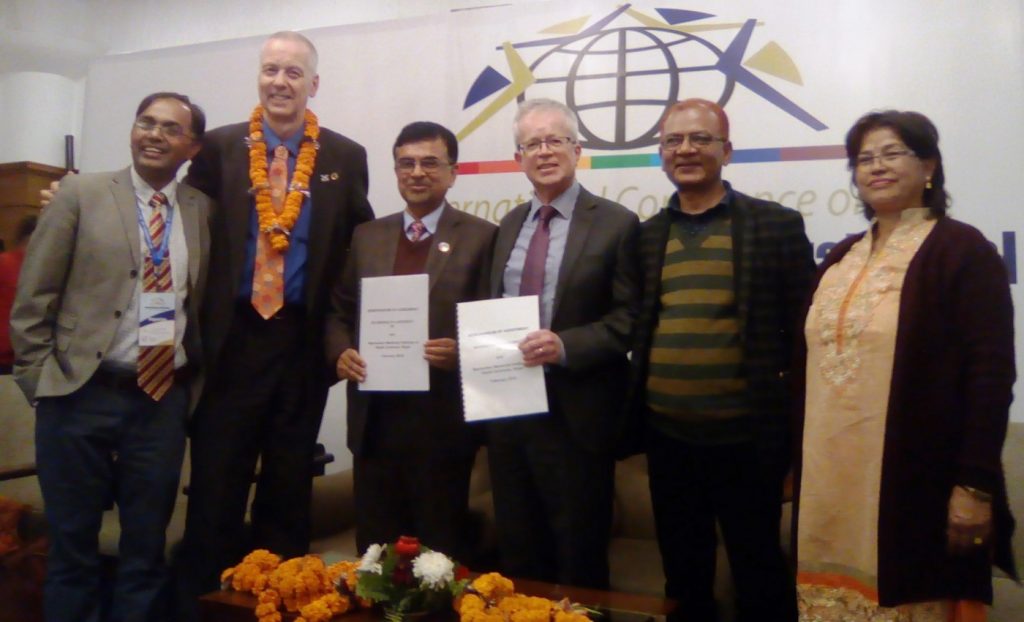
References:
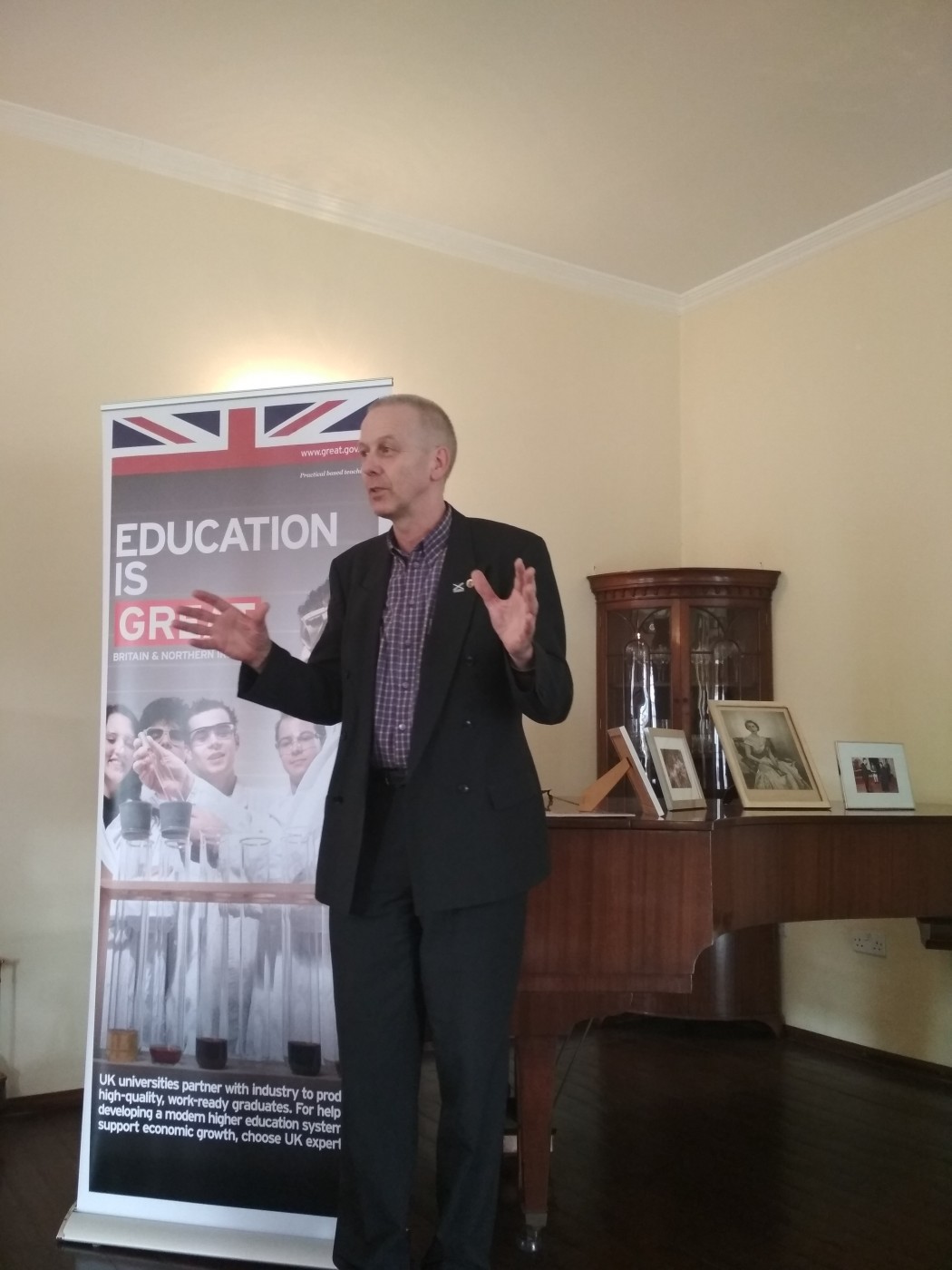 The British Ambassador to Nepal Richard Morris hosted the launch of a report of a market study of Nepal’s education sector today (28th February) in his Kathmandu Residence. The report was commissioned to help support UK service providers who are looking for education opportunities in Nepal. The Ambassador invited Bournemouth University’s Prof. Edwin van Teijlingen to highlight the UK’s expertise in research, as well as to share his own experience in UK-Nepal partnerships/ collaborations in education.
The British Ambassador to Nepal Richard Morris hosted the launch of a report of a market study of Nepal’s education sector today (28th February) in his Kathmandu Residence. The report was commissioned to help support UK service providers who are looking for education opportunities in Nepal. The Ambassador invited Bournemouth University’s Prof. Edwin van Teijlingen to highlight the UK’s expertise in research, as well as to share his own experience in UK-Nepal partnerships/ collaborations in education. 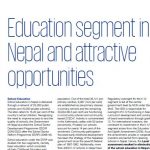
Prof. Edwin van Teijlingen is Visiting Professor at colleges in Nepal: (1) Nobel College, affiliated with Pokhara University; and (2) Manmohan Memorial Institute of Health Sciences, affiliated with Tribhuvan University.

The third Interdisciplinary Research Week (IRW) is being held from 19th to 23rd March 2018. Join us to celebrate the breadth and excellence of Bournemouth University’s interdisciplinary research, and stimulate new collaborations and ideas amongst the University’s diverse research community.
The week-long event includes a programme of lectures, workshops, and discussions, aimed at promoting interdisciplinary workings; to provide an understanding of how to get involved in Interdisciplinary Research.
Programme
Inspirational Speaker – Professor Celia Lury
British Academy Visit – Interdisciplinary Research
Collaborating with Others: Becoming a Better Team worker
Networking: Making the Most of an Upcoming Event
New research realities and interdisciplinarity
Interdisciplinary research with industry
Lighting Talks: What can and should be achieved in Interdisciplinary Research
What is MS?
Multiple Sclerosis (MS) is a chronic debilitating and progressive condition that affects the fatty tissue sheath surrounding nerves. Loss of the myelin sheath is largely responsible for uncoordinated movements because the nerves cannot transmit signals smoothly across the complex neural circuitry. A common symptom of MS is excessive yawning together with fatigue.
Research study
Following recent completion of a study at the Osborne Centre, West Parley, we found that people with MS had higher cortisol levels when yawning compared with healthy participants.
Previous research at Bournemouth University
This research follows several years of research by the author at Bournemouth University with the first report on the “yawning envelope”, identifying the electrical trace during yawning (Refs. 1-2), and the first report on the association between yawning and cortisol levels following provoked yawning (Refs. 3-6).

Yawning “envelope”
“Contagious” yawning is seen in animals as well humans; it may involve empathy to perceived social cues in humans.

Yawning: (clockwise) Fox, Pig, Human, Hippopotamus



A series of 3 Q and A events with talks about findings was held at the MS Society local branch which facilitated an interesting and lively debate among participants, researchers and staff at the Centre.
Further research planned
We believe that threshold levels of cortisol trigger the yawn response which lowers brain temperature, particularly important in MS where brain temperatures can be elevated considerably following fatigue. A funding bid is in preparation to examine early detection of MS using these findings.
About the author
Simon B N Thompson is Associate Professor, Bournemouth University; and Visiting Professor, Université Paris Ouest Nanterre La Défense, France. He has presented to His Excellency Bernard Emié, the French Ambassador at the French Embassy, signalling formation of the Anglo-French International Scientific Council for Research into Multiple Sclerosis.
Acknowledgements
Thanks to all volunteers; Alister Coleman and Nicola Williams for assisting in data collection and analysis; Rod Slip, Group Co-ordinator and Kay Bundy, Fundraising Co-ordinator of the MS Society Osborne Centre for providing free facilities.
References
1. Thompson, S.B.N., 2013. How to catch a yawn: initial observations of a randomised controlled trial. WMC Neurology, 4(8), doi: 10.9754/journal.wmc.2013.004371.
2. Thompson, S.B.N., Frankham, C., & Bishop, P., 2014. The art of capturing a yawn using the science of nerve impulses and cortisol levels in a randomized controlled trial. Thompson Cortisol Hypothesis as a potential predictor of neurological impairment. International Journal of Arts & Sciences, 7(3), 529-543.
3. Thompson, S.B.N., 2011. Born to yawn? Cortisol linked to yawning: a new hypothesis. Medical Hypotheses, 77, 861-862.
4. Thompson, S.B.N., & Bishop, P., 2012. Born to yawn? Understanding yawning as a warning of the rise in cortisol levels: randomized trial. Interactive Journal of Medical Research, 1(2), e4, 1-9, doi: 10.2196/ijmr.2241.
5. Thompson, S. B. N., Daly, S., Le Blanche, A., Adibi, M., Belkhiria, C., Driss, T., de Marco, G., 2016. fMRI randomized study of mental and motor task performance and cortisol levels to potentiate cortisol as a new diagnostic biomarker. Journal of Neurology & Neuroscience, 7(2); 92: 1-8.
6. Thompson, S.B.N., 2017. Hypothesis to explain yawning, cortisol rise, brain cooling and motor cortex involvement of involuntary arm movement in neurologically impaired patients. Journal of Neurology & Neuroscience, 8(1); 167: 1-5.